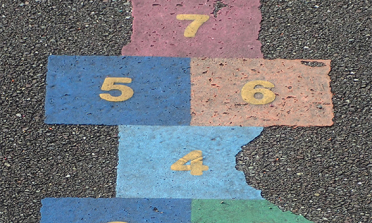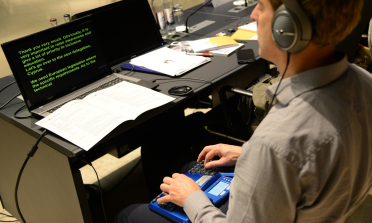We carry out activities involving our extensive network in EASNIE member countries. The aim is to provide member countries and stakeholders at the European level with evidence-based information and guidance on implementing inclusive education systems.
Read about the various EASNIE activities in detail below. You can use the filters to search and select the activities you want to see based on their theme, the participating countries, or the years they took place in. You can select multiple filters to narrow down your search.
This is a list of EASNIE activities in chronological order.
For further information on any of the EASNIE activities, please contact the Secretariat: secretariat@european-agency.org

Shutterstock / Owlie Productions
Advancing Collaboration in Education
Advancing Collaboration in Education (ACE) explores the topic of collaboration and cross-sector working at all system levels.

Shutterstock / metamorworks
Thematic Country Cluster Activities
As part of its aim to be an active agent for change, EASNIE has developed a new way of working with its member countries. The Thematic Country Cluster Activities (TCCA) began in 2023, addressing EASNIE member countries’ priorities by working in small clusters of countries.

Shutterstock / fornStudio
Country System Mapping
In a departure from the Agency’s previous thematic activities, Country System Mapping (CSM) considers the whole education system. It examines how certain structures, mechanisms and processes may impact on the implementation of inclusive education policy in practice.

Shutterstock / Rawpixel.com
Legislative Definitions around Learners Vulnerable to Exclusion
The Legislative Definitions around Learners Vulnerable to Exclusion desk research activity addresses how Agency member countries legally define concepts around learners who are vulnerable to exclusion.

European Agency Statistics on Inclusive Education
The Agency’s data collection activity (EASIE) provides focused data that informs country policy priorities on inclusive education, the European Commission’s strategic objectives on inclusive education and the implementation of Article 24 of the United Nations Convention on the Rights of Persons with Disabilities (2006).

Shutterstock / Monkey Business Images
Key Principles
The Key Principles publications systematically present recurring messages in Agency work that support the implementation of high-quality education for all learners.

Inclusive Early Childhood Education
The 3-year Inclusive Early Childhood Education (IECE) project focuses upon the fact that early childhood educational experiences have an important impact on a person’s life – provision of high quality early childhood education has positive effects on achievement and social adaptation of children.

Shutterstock / alphaspirit.it
Financing of Inclusive Education: Mapping Country Systems for Inclusive Education
The Financing of Inclusive Education project activities have focused on information collection via desk research and country data gathering in order to provide an update on the previous Agency financing study, as well as build on the findings of other Agency and international work.

Shutterstock / Matej Kastelic
Raising the Achievement of All Learners in Inclusive Education
The Raising the Achievement of All Learners in Inclusive Education project aims to provide evidence of effective practice in raising achievement and building the capacity of schools and communities to include and support all learners. This work builds on the previous Raising Achievement for all Learners (RA4AL) Agency project.

Agency
ICT for Information Accessibility in Learning
The ICT4IAL project is a multi-disciplinary network of European and international partners that represent both learning and ICT communities aiming to raise awareness and increase the visibility of the issue of accessible information provision and its relevance for equitable lifelong learning opportunities and support accessible information provision within organisation.

ICT for Inclusion
The ICT4I project focuses on the use of ICT to support the learning of learners with disabilities and special educational needs in inclusive settings within compulsory education.

Raising Achievement for All Learners – Quality in Inclusive Education
The RA4AL project aims to address the ways in which inclusive policy and practice can raise the achievement of all learners.
